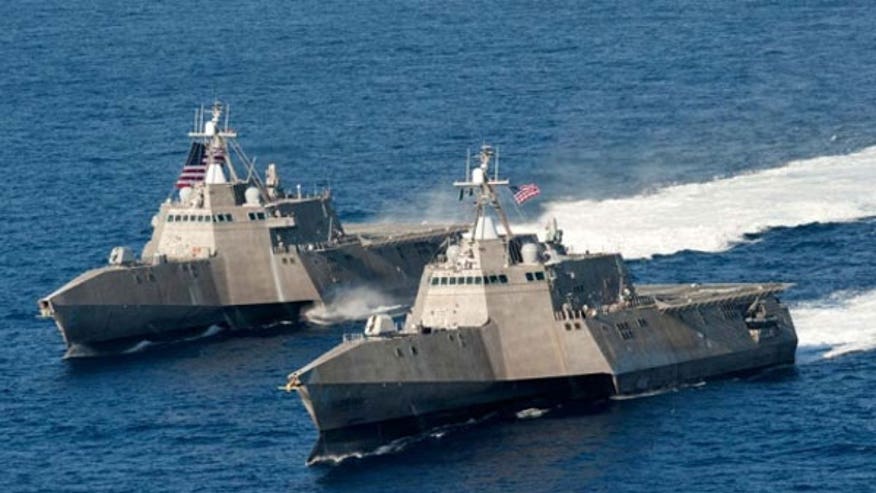
WASHINGTON -- The Government Accountability Office released the following report highlight:
What GAO Found
Not completing these trials increased knowledge gaps related to ship performance and deficiencies. In addition, LCS 1 and LCS 2 did not meet the quality standards outlined in the Navy's ship acceptance policy, although the policy also contains several notable flexibilities to these standards. In particular, the policy recognizes situations where the Navy may defer work until after delivery and final acceptances and affords the Chief of Naval Operations the authority to waive certain quality standards outlined in the policy. The Navy relied extensively on these waivers to facilitate its trials and acceptance processes for LCS 1 and LCS 2.
Navy decisions to accept delivery of LCS 1 and LCS 2 in incomplete, deficient conditions were driven by a focus on near-term cost performance by shipbuilders, a desire to introduce the long-delayed ships to the fleet, and--in the case of LCS 1--environmental and treaty considerations associated with constructing that ship adjacent to the Great Lakes. The Navy prioritized these factors over its quality assurance processes for both ships, which has caused it to devote considerably more time and money to resolving deficiencies after delivery than anticipated. However, because the Navy did not establish clear deadlines for resolving ship deficiencies, corrections were allowed to lag, to the point that fleet operators inherited unresolved deficiencies on each ship. These deficiencies have constrained recent shipboard operations.
Why GAO Did This Study
GAO has reported extensively on LCS--an innovative Navy program, consisting of a ship and its mission packages. The Navy bought the first two ships using research and development funds, initially planning to experiment with them to test concepts and determine the best design. As GAO reported in July 2013, the Navy later opted to fund additional ships without having completed this planned period of discovery and learning. Further, LCS 1 and LCS 2 have experienced major cost growth and schedule delays. In August 2010, GAO reported that the ships were incomplete at delivery and in November 2013, GAO reported on significant quality problems with Navy ships, including LCS 1 and LCS 2, noting that the Navy regularly accepts ships with numerous open deficiencies.
Congress mandated that GAO review the Navy's compliance with federal regulations in accepting LCS 1 and LCS 2. This report (1) assesses the extent to which the Navy complied with applicable federal regulations, policies, and contracts and (2) evaluates the basis for and outcomes from decisions to accept these ships. To conduct this work, GAO analyzed applicable federal regulations, policies, contracts, and program documentation, and spoke with relevant Department of Defense (DoD) and contractor officials.
What GAO Recommends
Because the opportunity to implement acquisition changes to these two ships has passed, GAO is not making any new recommendations in this report, but has made prior recommendations to improve LCS acquisition. DoD has acted on some, but not all, of these.